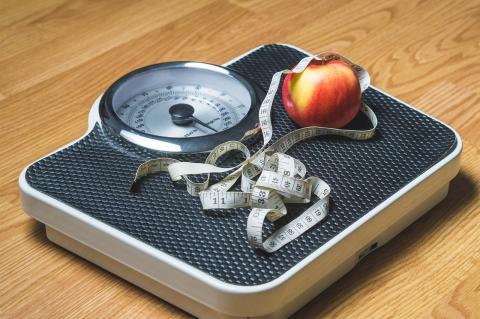
Join Basmati.com every week for a Q&A session with one of Basmati’s practitioners, Melissa Hill (FDN-P)! We know that there is a lot of confusing information out there, which can make applying health advice overwhelming. Sometimes, it’s best to ask a practitioner directly, so each week we’ll cover a common health question!
Do you have a health question you’d like to ask? Write to us at editors [at] basmati [dot] com () and your question could be chosen and featured in a future column!
Q. Why can’t I lose weight? I have been counting my calories and exercising and the weight won’t drop.
A. Counting calories probably isn’t working for you because there is a lot more to the food you’re eating besides calories. Food is information. Everything you eat interacts with your body’s chemistry and initiates different chemical reactions and processes in your body. These relay messages to different systems in your body, give them nutrients to work with, or give them material that’s challenging to handle which bogs them down, slowing function and outcomes. Also, since each of our internal environments is different (different make up, genetics, microbiome, enzymes…) Each particular food can have a different effect for different people. This is a major reason why just counting calories won’t cut it. The type and quality of the food you are eating matters more. What materials are you giving your body to work with? Are you eating nutrient-dense food that fuels your systems and metabolism or are you eating foods that are hard for your system to manage, slowing down processes and metabolism and impairing your optimal function?
Most people who are worried about losing weight have been told to focus on limiting calories in, maximizing calories out, and exercising, but there is so much more to the equation. These people often miss the fact that most of their weight gain is attributed to chronic inflammation. So, addressing inflammation is most often the key missing factor for weight loss.
What do I mean by inflammation? Well, you are probably familiar with the pain, swelling, redness, and heat that classically signify inflammation. For example, if a bee stings you, it swells up, gets red, and hurts. That is inflammation, our body’s reaction to an injury or invader. It is a part of our natural defense system -- like the emergency crews to the scene of an accident. They are there to help repair damage and clean up the mess, which is useful, but if they stay too long, they block the flow of traffic to that area, causing backups miles down the road. So, while inflammation has its useful purpose initially to protect you and start healing, it can cause many problems and slowdowns in the body if left to go on unaddressed; this is chronic inflammation.
If you have been struggling to lose weight for a while, you might be misdirected in trying to fight a calorie battle. Your real work is on another front, battling your chronic inflammation. Take steps to identify where this inflammation is coming from and address that, clearing the pathways in your body so that you can drop the extra weight if you wish. Now there are many possible reasons and causes of inflammation; the primary ones are:
- Consumption of sugars, artificial sugars, refined vegetable oils, and other modern processed foods that directly promote inflammation, weight loss resistance, and obesity.
- Microbiome/bacterial imbalances or chronic infections. Certain types of gut bacteria have been associated with obesity and weight gain. Other strains of bacteria can trigger inflammation and pain in your body. An overgrowth of the wrong type of bacteria can keep your immune system tied up and be a constant drain on your energy.
- Environmental toxin exposures. Chemicals in day-to-day products can literally be obesogens, meaning they are a ‘substance that alters lipid homeostasis and fat storage, changes metabolic setpoints, disrupts energy balance or modifies the regulation of appetite and satiety, promoting fat accumulation and obesity.’ Common obesogens are things like:
- BPA in plastic water bottles and linings of canned food
- Phthalates and Parabens found in personal care products like lotions, shampoos, and fragrances (make your own instead!)
- Heavy metals and plastics in kitchen tools and food storage containers
All of these can disrupt your hormonal balance and lead to weight gain.
Chronic inflammation is essentially the root of any major disease -- headaches, joint pain, dementia, heart disease, diabetes, etc. -- and a major contributor to obesity.
Being fat is being inflamed
Many weight-loss programs are based on either low-fat or low-calorie processed foods but are pro-inflammatory, which is one reason they are not successful for a lot of people. Switching to an anti-inflammatory diet that is rich in fruits, vegetables, and healthy fats can help. Avoiding processed foods, sodas, gluten, refined flours, unhealthy fats, and added sugars, plus any foods that you are sensitive to, will help to lower inflammation, improving your hormonal messaging and metabolism. If it seems overwhelming, work with a practitioner to help you sort it out and give you steps to take charge of your health!








